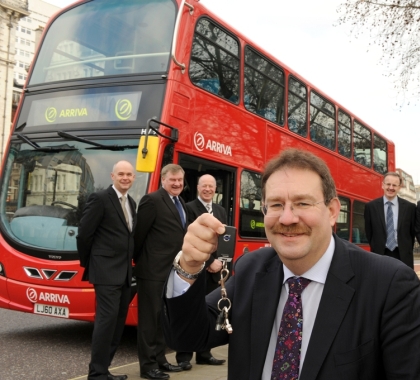
Doubledecker - hybrid pro Arrivu, s klíčem Arriva London Managing Director Bob Scowen.
(CZ + EN) s karosérií Wrightbus pro Arrivu v Londýně, 463 podvozků pro BRT pro Jižní Ameriku a dobré výsledky Volvo Buses 2010. (Arriva takes 20 new Volvo hybrid buses for London services. Volvo secures order for 463 buses in South America. 2010 strong year for Volvo Buses)
(CZ + EN) s karosérií Wrightbus pro Arrivu v Londýně, 463 podvozků pro BRT pro Jižní Ameriku a dobré výsledky Volvo Buses 2010. (Arriva takes 20 new Volvo hybrid buses for London services. Volvo secures order for 463 buses in South America. 2010 strong year for Volvo Buses)
Arriva přebírá 20 nových hybridů Volvo pro provoz v Londýně
Společnost Volvo Buses oficielně předala 20 hybridních doubledeckerů Volvo B5L hybrid s nástavbou Wrightbus Gemini 2 společnosti Arriva v Londýně. Vozidla se vyznačují další vyýraznou investicí do podpory ekologické dopravy ze strany Arrivy a organizátora Transport for London (TfL).(Informace o hybridech Volvo jsme na BUSportálu přinesli podrobně v minulosti.)B5L hybrid neznamená jen "zelené" standardy, pro které je podporován nadací Green Bus Fund, ale dodává stimul kvalitní nástavbě Wright Group.
Z TZ Volvo Buses, zkráceno, kompletní v angličtině.
Volvo zajišťuje objednávku na 463 autobusů v Jižní Americe
463 autobusových podvozků je určeno pro Curitibu v Brazílii a Quito v Ecuadoru. Všechny autobusy budou rozmístěny do účinných dopravních systémů BRT.(Informace o systému BRT (Bus Rapid Transit) jsme na BUSportálu přinesli podrobně v minulosti.)Brazilská Curitiba byla prvním městem se systémem BRT a Volvo hlavním dodavatelem. Nová objednávka je na 383 podvozků v kombinaci dvoukloubových, kloubových a standardních 12 m vozidel. Zákazníci Pontual, Transbus a Pioneiro jsou tři z konsorcia, provozujícího dopravu v Curitibě a sousedních městech.
Druhou zakázkou pro BRT systém je 80 kloubových autobusů pro hlavní město Ecuadoru Quito. Je to pro dopravce EPMMOP, jednoho z dopravců v jižní zóně města.
Všechny podvozky budou vyrobeny ve výrobním závodě Volvo Buses v Curitibě (výroba začala v lednu 2011 a dodávky jsou naplánovány na rok 2011)
Z TZ Volvo Buses, zkráceno, kompletní v angličtině.
Silný rok 2010 pro Volvo Buses
2010 byl silný rok s více prodanými vozy než v ŕoce 2009 a s významně zlepšujícími se příjmy (podrobně v tabulce dole). globální trh autobusů ukázal rozštěpení. Evropu charakterizuje pokračující slabá poptávka, pozitivní signály vykazuje trh autokarů. V Severní Americe zůstává autokarový trh slabý, ale yvpadá to, že se odrazil ode dna. V segmentu měststských autobusů je trend negativní.Mexický trh koresponduje s USA, s velkým zájmem o systémy BRT. V Jižní Americe roto poptávka po městských autobusech a autokarech.
Asijský a africký trh vykazuje silný růst, především Čína a Indie.
Z TZ Volvo Buses, zkráceno, kompletní v angličtině.
Arriva takes 20 new Volvo hybrid buses for London services
Volvo Buses has officially handed over 20 Volvo B5L hybrid Double Deck buses with Wrightbus Gemini 2 bodywork to Arriva London. The new vehicles mark another significant investment in the support of green friendly transportation by Arriva and Transport for London (TfL).Poised to enter service on a number of Arriva’s key Transport for London routes, the Volvo B5L hybrid were officially handed over to Arriva London Managing Director, Bob Scowen and London Buses, Operations Director, Mike Weston by Volvo Bus Sales Director, Phil Owen and Sam McLaren, Commercial Director, The Wright Group.
Commenting on the new Volvo hybrid Double Deck vehicles Arriva Managing Director, Bob Scowen, said “It’s great to see the new technology being introduced into the Arriva fleet”. He also explained that, “initial feedback from drivers and passengers has been positive”.
Volvo’s hybrid bus is a parallel hybrid, where a smaller diesel engine and an electric engine can be operated independently or jointly. The electric engine operates on a battery that is charged by recycling the brake energy.
“By recycling the brake energy in the buses, we are able to significantly reduce fuel consumption and thus also energy consumption and emissions of the greenhouse gas carbon dioxide,” says Volvo Buses’ Environmental Manager, Edward Jobson. “We have noted that the reduction generated by the hybrid buses in operation could be as much as 35%.”
A major advantage is that the diesel engine switches off at bus stops and the bus starts again using only the electric engine. This creates a quiet and exhaust-free environment at bus stops. “Arriva knew the high specification of vehicle they required for their London operations,” commented Phil Owen, Volvo Bus Sales Director, “The B5L not only meets all green standards and is therefore supported by the Green Bus Fund, but has the added incentive of the high quality Wright Group bodywork, meaning it looks great as well”.
Volvo secures order for 463 buses in South America
Volvo Buses has secured an order for 463 bus chassis for Curitiba in Brazil and Quito in Ecuador. All of the buses are to be deployed in the efficient transportation solutions known as BRT systems.BRT, or Bus Rapid Transit, is one of the most cost-efficient public transport solutions. These transportation systems are based on such features as high passenger capacity buses, separate bus lanes and stops to allow passengers to quickly board and alight from buses. Latin America has spearheaded the development of BRT systems, which are used in many cities in the region, although this type of efficient transportation system now exists in many locations throughout the world.
Volvo Buses is a market leader for the delivery of buses for BRT systems and this position is further strengthened by the company’s latest order for 463 bus chassis.
Curitiba in Brazil was the first city to introduce BRT systems and Volvo has been a leading supplier to the system since it was started. The new order is for 383 bus chassis encompassing a combination of chassis for bi-articulated buses, articulated buses and standard 12-meter buses. The customers, Pontual, Transbus and Pioneiro, are three of the consortiums that operate transportation services in Curitiba and its neighboring towns.
“This is one of the largest orders that we have received in Curitiba,” says Luis Carlos Pimenta, President of Volvo Buses Latin America.
The second order for a BRT system is for 80 articulated buses for Quito, the capital of Ecuador. The customer is EPMMOP, one of the operators of the south zone of Quito’s BRT systems.
“We secured this order due to Volvo’s reputation in the country as a manufacturer of high-quality, robust vehicles,” explains Luis Carlos Pimenta. “It was also due to the excellent technical support provided by our importer, Macasa, and Volvo’s broad experience of transportation in large cities located at high altitudes.”
All 463 chassis are to be manufactured at Volvo Buses’ plant in Curitiba commencing in January with deliveries scheduled during 2011.
2010 strong year for Volvo Buses
2010 was a strong year for Volvo Buses, with more buses sold than in the preceding year and significantly improved earnings. The order intake rose 22% during the fourth quarter.The global bus market displayed a split trend. Europe is characterized by continued weak demand, however, some positive signs were noted in the coach market. In North America, the coach market remained weak, but there are signs that the market has bottomed out. For city buses, the trend remained negative.
The market in Mexico largely corresponded to the trend in the US, with low activity in general but major interest in the Bus Rapid Transit systems (BRT). In South America, demand rose in the market for city buses and coaches.
The total bus market in Asia and Africa displayed a strong increase. It is primarily China and India that account for the largest increase.
Improved order intake
During 2010, 10,229 buses were delivered, which is an increase from 9,857 in the preceding year. Deliveries during the fourth quarter were on the same level as the year-earlier, 3,230 buses compared with 3,272 in 2009.
During the fourth quarter, order intake totaled 3,677 buses, compared with 3,003 buses in the year-earlier period, an increase of 22%. South America and Asia Pacific accounted for the largest increase. Included in the fourth quarter is an order from Perth, Australia for 650 buses over 10 years. During the quarter, the largest order to date in India was signed, 100 coaches, which will be delivered in 2011. At the same time, Volvo Buses announced that it had acquired the remainder of the shares (30%) from the joint-venture partner, Azad Group, in India.
Volvo is the leading supplier of buses for the BRT systems in Latin America. During the quarter, Volvo Buses received orders for 463 bus chassis, of which 383 for the major BRT system in Curitiba, Brazil and 80 for articulated buses for Quito, Ecuador.
Improved profitability
Net sales in the fourth quarter declined by 3% to SEK 5,602 M (5,793). Adjusted for currency fluctuations, net sales decreased by 1%.
In 2010, the operating income improved significantly to a profit of SEK 780 M, compared with a loss of SEK 350 M in 2009. Operating income during fourth quarter amounted to SEK 221 M, compared with a loss of SEK 46 M in the fourth quarter of 2009.
The operating margin was 3.9% compared with a negative 0.8% in the fourth quarter of 2009. The income improvement was primarily due to increased sales volume, improved market mix and cost savings.
Continued focus on cost and capital efficiency
Despite weak markets in North America and Europe, Volvo Buses reported improved profitability and capital efficiency as a result of its long-term, global improvement program. Furthermore, the concentration on profitable growth will be added to the improvement program, with a continued strong focus on cost and capital efficiency.
Press Informations, Volvo Bus Corporation
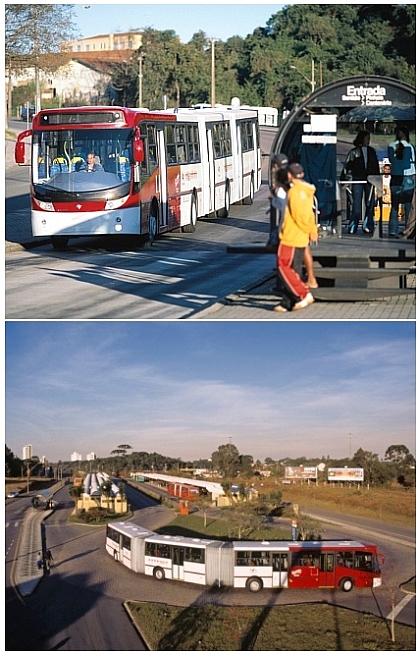
Curitiba

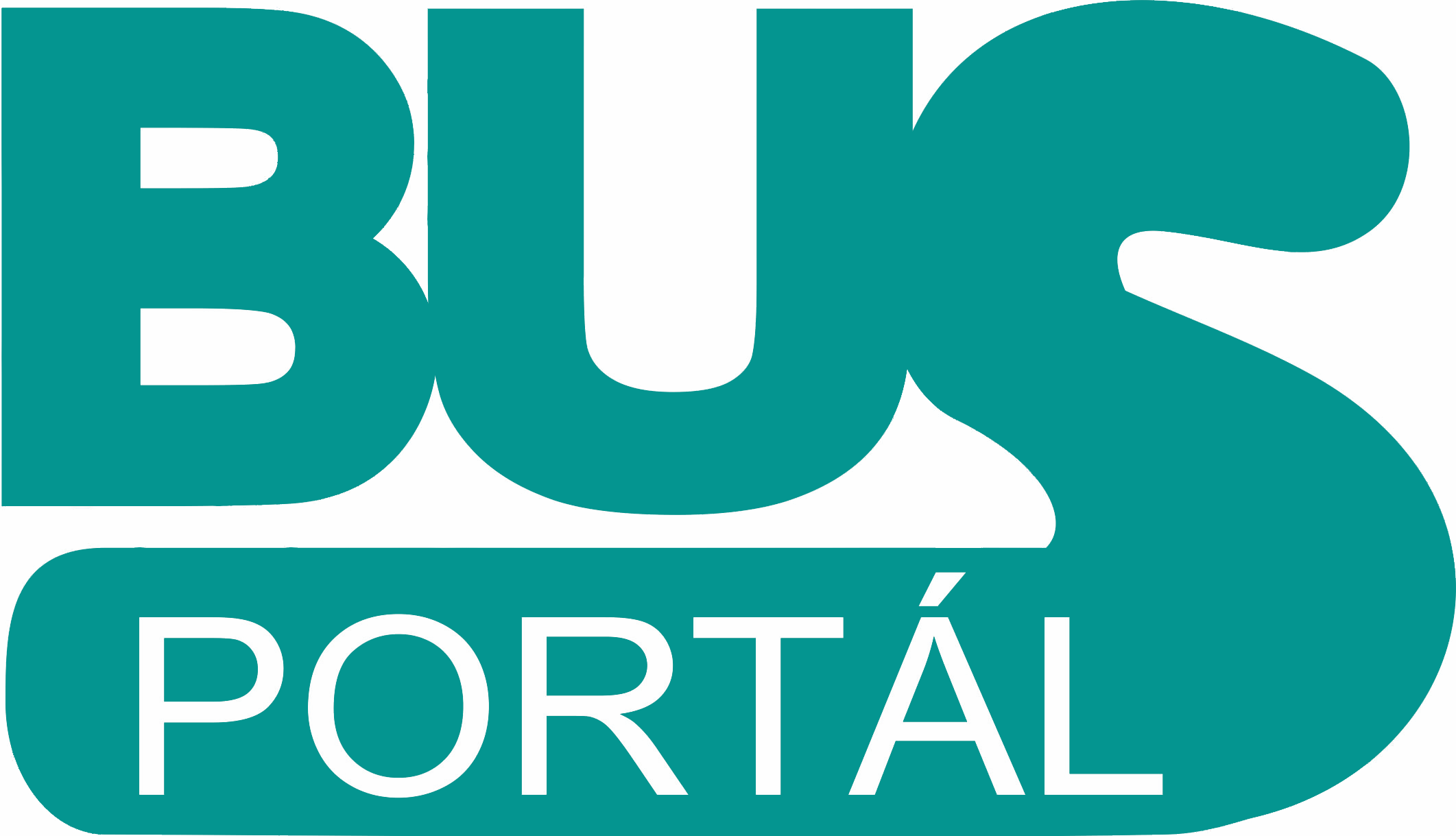


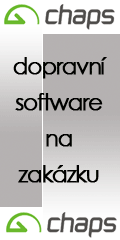
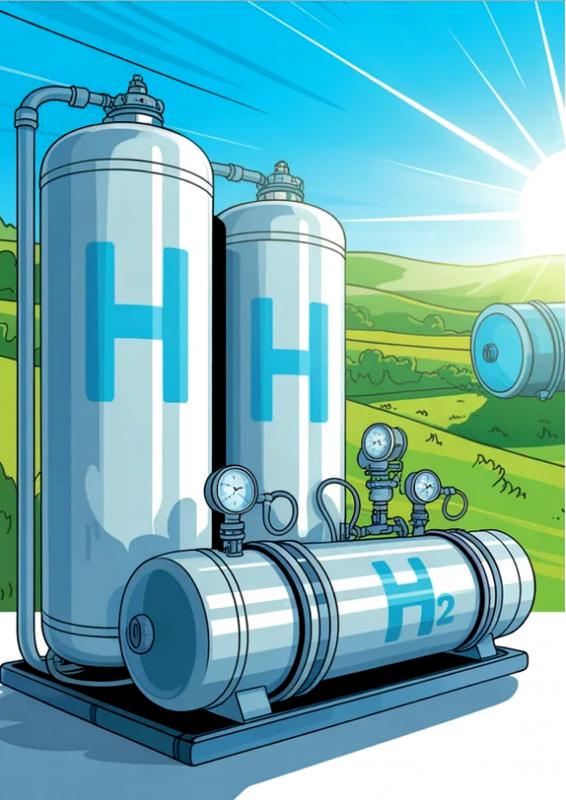 Vodík přešel od politických prohlášení k tvrdé realitě trhu
Vodík přešel od politických prohlášení k tvrdé realitě trhu
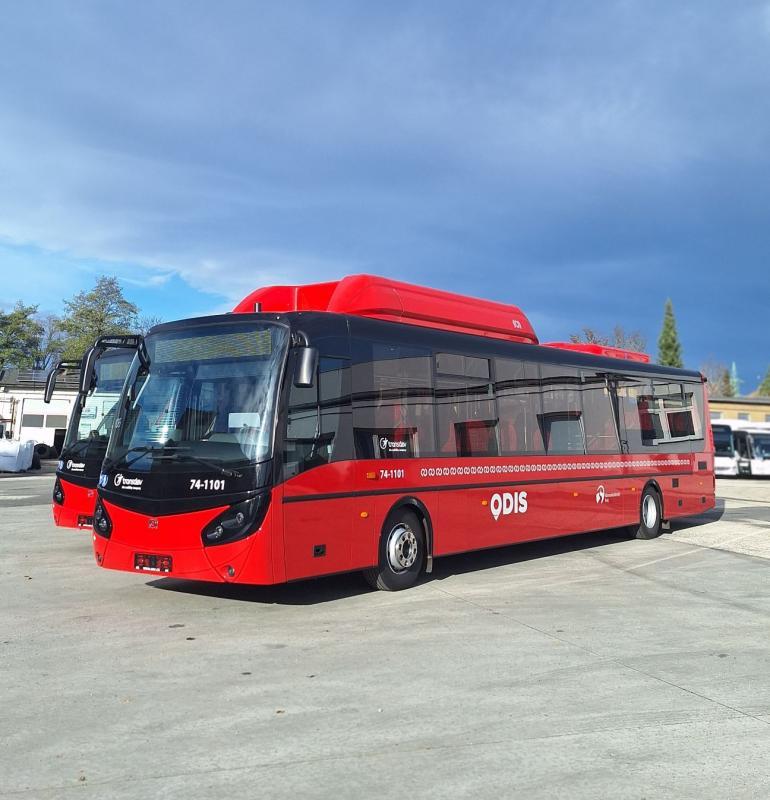 Registrace autobusů v ČR v listopadu 2025
Registrace autobusů v ČR v listopadu 2025
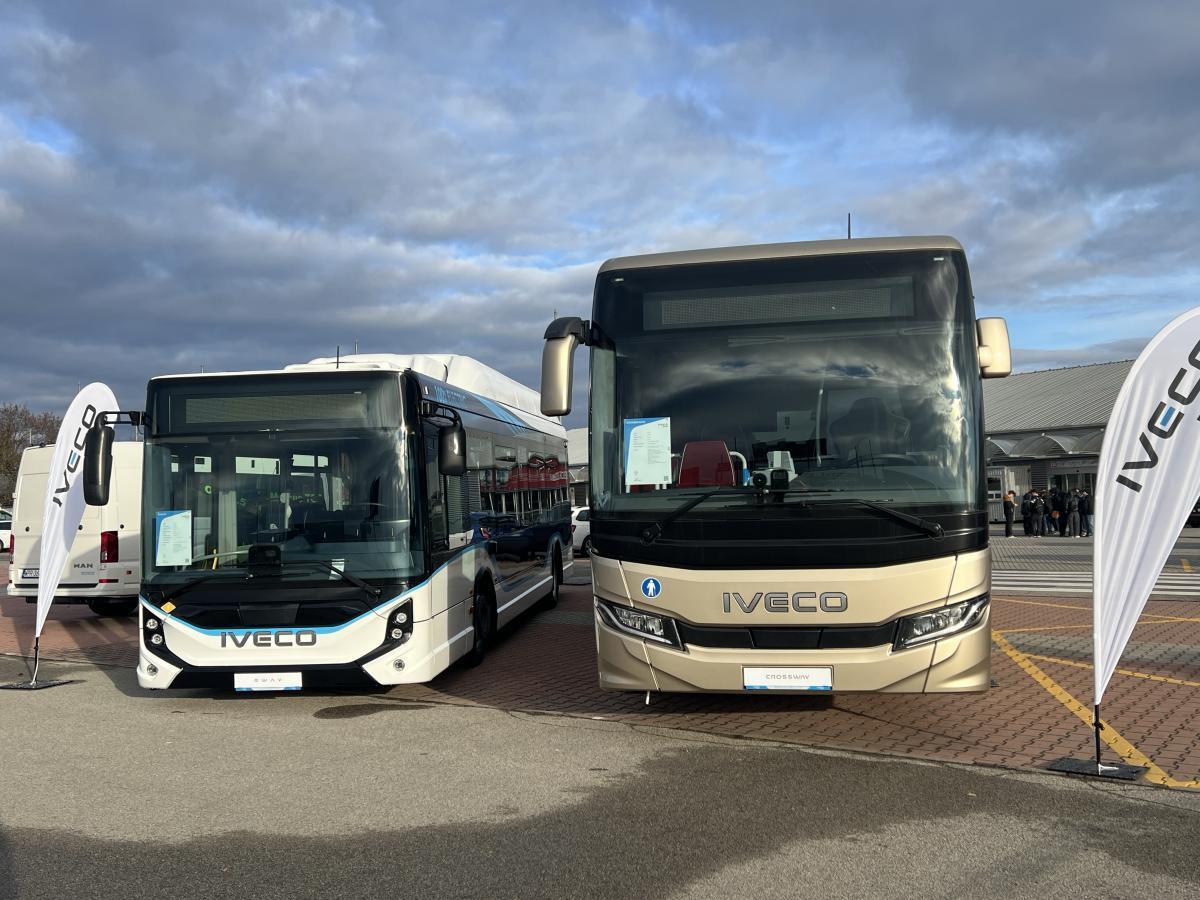 EK schválila akvizici Iveco Group společností Tata Motors
EK schválila akvizici Iveco Group společností Tata Motors





